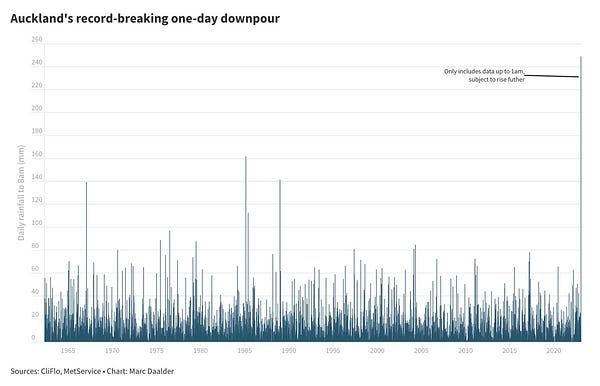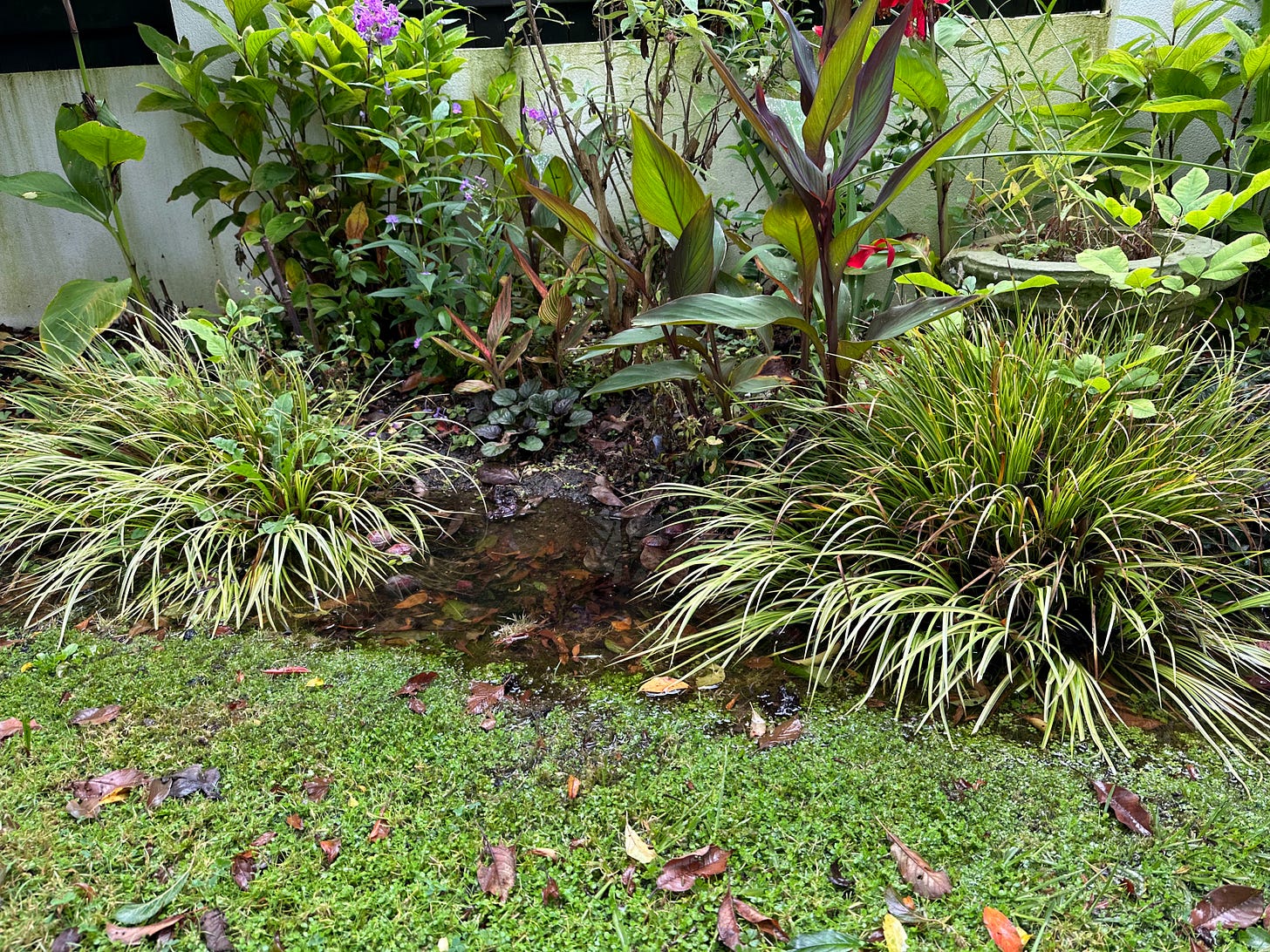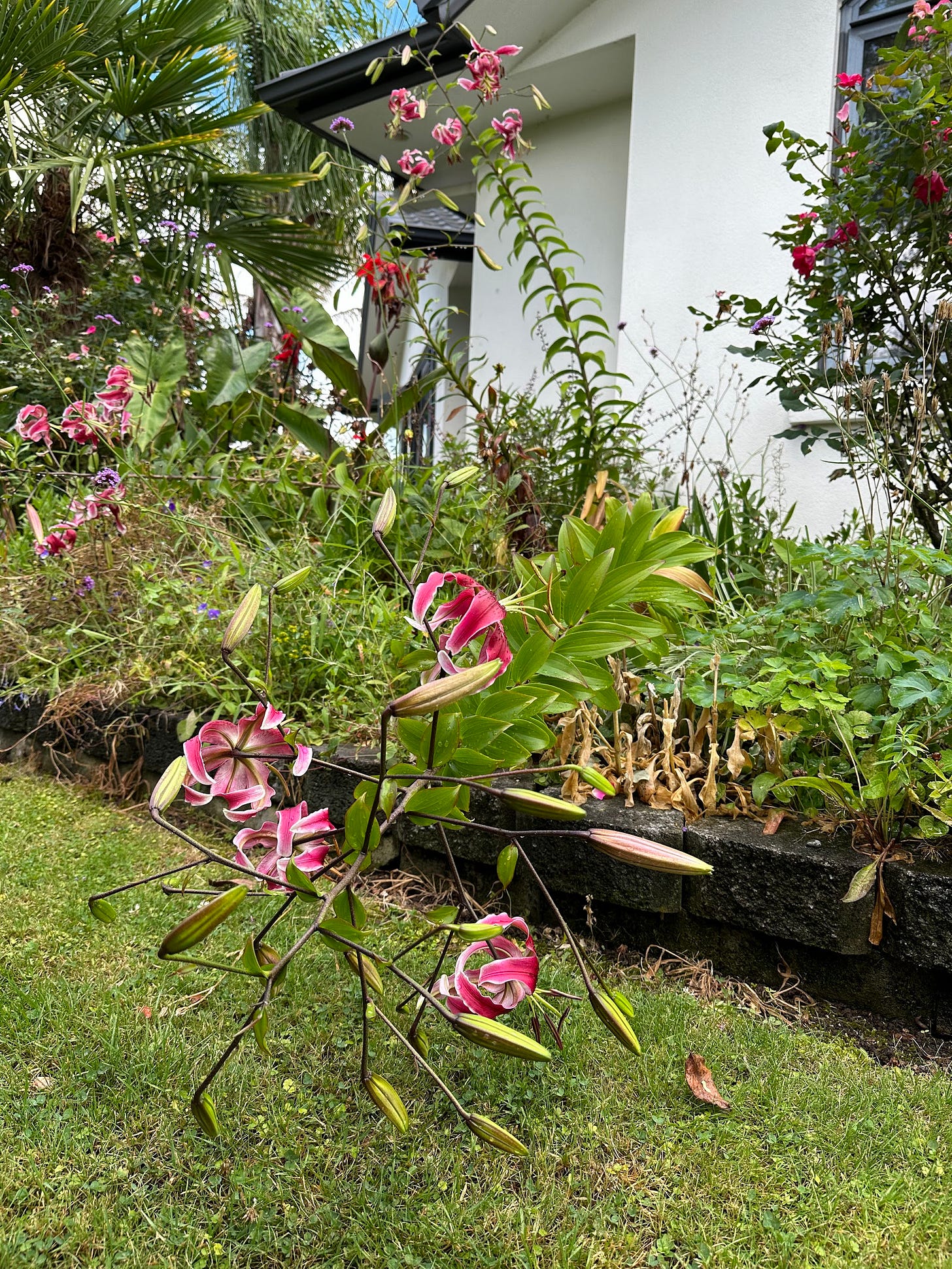Flowers never bend with the rainfall
In which we kontinue to kontinue
I published the last instalment of Let’s Get To The News ten days ago, on January 18. There has, shall we say, been news since then.
First of all, some local politics: the day after I published — a Thursday, as it happens — New Zealand’s prime minister resigned. Her replacement — who I should point out, is legitimately known as “Chippy” — was selected on Sunday and sworn in on Wednesday. Take that, drawn out leadership contests and/or democracy, depending on your point of view.
Today, our new Prime Minister was observing the damage to New Zealand’s largest city, Auckland, which had an entire average summer’s worth of rain in one day. Take that, Elton John fans.
The best way to understand the impact is to look at TikTok videos of Auckland buses. Or, to put it another way:



Prime Minister Chippy was delayed in arriving because the airport looked like this:
The news clearly made it to the rest of the world, because a couple of kind souls reached out to see that I hadn’t floated away. I live about 100km south of the hardest-hit areas, but it did have some impact on the garden.
We do already get a lot of rain here, as you might guess by how green everything is.
And to think that earlier in the week I was planning to start by talking about layoffs at Google.
Layoffs at Google
Most of you will know I worked at Google for nearly nine years, moving on last October. That may or may not have been a prescient move.
The axe started swinging in the US, where employee protection seems to equate to “we won’t let you get eaten by a mountain lion”. With around 7,000 of the promised 12,000 layoffs having been communicated on the first day, the Googlers in the “Rest Of The World” — the region I’ve always called home — are now on tenterhooks, waiting to learn if they are to be considered for redundancy1.
This move has forced a number of people to come to terms with the fact that no matter how unconventional a company may once have been, the company is not your family or friend. What has been amazing to see is how the network of people you work with can become your family and friends. Thousands of Googlers, safe, laid-off, in limbo or ex, have joined forces to help each other. Many I have seen that have posted looking for opportunity have been extensively retweeted2 or have dozens of replies.
Although the method may never be known, it seems likely that an external team of bean-counters were given a bunch of inputs, and came up with a bunch of outputs that make no sense to the staff. But hey, at least it didn’t leak. At least two former guests of the old show were on the list. Both are people you definitely wouldn’t unceremoniously part with if you wanted people to think your company cared about open source or cloud native.
Let’s get to the snooze
Those are but two of the distractions in what has been a long and hard week, but I am in your debt, dear reader, and publishing this sits between me and sleep3. So, as Martin Luther King once said, I’ve had to make some cuts. A few business highlights, and we’ll save the project stories for next week.
With everyone’s employee count and stock price going down4 , a rare point of celebration in an earnings call: Red Hat's OpenShift container platform is now a $1 billion dollar business5.
Shipa (#175) has been acquired by Mirantis (#110). The blog post announcing the acquisition says that Shipa’s technology will become part of the Lens platform, which remains in a Schrödinger’s state of open core.
Ruby on Rails creator and Internet curmudgeon David “DHH” Heinemeier Hansson has been lamenting the fact that SUSE wanted to charge the actual price for Rancher, not the 80% discount he has become accustomed to. This sent him into a spiral of criticism6 of the Cloud Native ecosystem, but also to the publication of 37signals's cloud costs. Assuming they keep us updated as their move from the cloud progresses, this will be an interesting case study in whether or not you really can use Cloud Native to, you know, run like a cloud, but natively.
Open source consultancy OpenLogic, now owned by Perforce, has released a state of open source report. Container tools are behind only software development tools as the number two most commonly used category. The top challenge is stated as maintaining security policies or compliance, but a separate cloud native section puts security as the lowest support challenge78. As is usually the case, reading the report requires you becoming a sales lead.
We’ll be back mid-next week!
Employee protection in the UK looks like a consultation process which must last at least 45 days before any dismissals are made, and is seeing a lot of Googlers join a union.
We thought Twitter was dead and all the nerds had gone like Donkey Mastodon; that turned out not to be the case.
When one has a weekly media property, it’s important to actually publish every week.
Except Buzzfeed, whose stock is up 430% year to date on the news that they’re literally replacing 12% of their staff with ChatGPT. You can’t make this up.
Never be ashamed to ask: $1 billion refers to its annual run rate, which is a measure of the batting performance of a cricket team.
The last time that happened he lost a third of his employees.
Perhaps they’re all using Kubescape already?
The report also suggests that more people use OKD, Red Hat’s upstream for OpenShift, than use Kubernetes, which it includes. Take all reports with a grain of salt.





